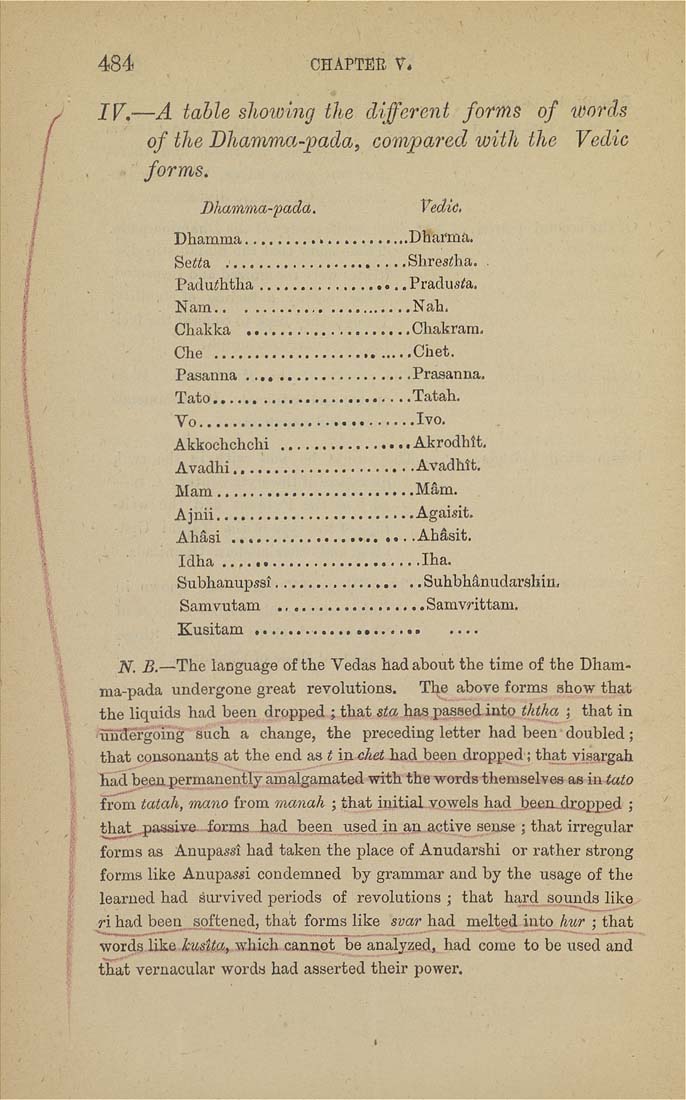484 CHAPTER V.
IF.—A table showing the different forms of words
of the Dhamma-pada, compared with the Vedic
forms,
Dhamma-pada. Vedic,
Dhamma.....................Dharma.
Bettsi .-.....................Shres«ha.
PaduJhtha..................Pradusfa.
Nam.......................Nah.
Chakka ....................Chakrara.
Che .........................Chet.
Pasanua....................Prasanna.
Tato........................Tatah.
Vo..........................Ivo.
Akkochchchi................Akrodhlt.
Avadhi......................Avadhtt.
Mam........................Mam.
Ajnii........................Agaisit.
AhSai ......................Ahasit.
Idha..,.....................Iha.
Subhanupsst.................Suhbhtoudarshin.
Samvutam ..................Samvrittam.
Kusitam........................
Ji[. B.—The language ofthe Vedas had about the time of the Dham¬
ma-pada undergone great revolutions. Tl^e above forms show that
the liquids had been dropped; that sto..,b8,a,Pigse.d.into ,?A£Aa ; that in
'iSaefgoing'" such a change, the preceding letter had been'doubled;
that coBSonautg at the end as ii.n.«ietli»_d_be.en. dropp,ed-; that^yisargah
liad bgen.Eermanently amalgamated with the -words-themselves »&mMito
from tatah, mano from manah ; that initial_sS>wels_.had,.iisen-draEE§.d ;
that^a^ajye f^rms h.^.Jh^.^ILJl^.d.Jjlf^:J^ active sense ; that irregular
forms as Anupassi had taken the place of Anudarshi or rather strong
forms like Anupassi condemned by grammar and by the usage of the
learned had survived periods of revolutions ; that hard_spunds like
ri had been softened, thai; forms like syar had nieltjd into hur ; that
■words,like kustta, which cannot be analyzed, had come to be used and
tliat vernacular words had asserted their power.
|








